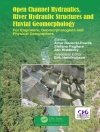This book contains well-researched (literature review/field surveys) and personal experience on the origin and adaptation of Bengal tiger (Panthera tigris tigris), the only large carnivore species inhabiting the mangrove forests across the world. The Bengal tiger population in this mangrove habitat is isolated from other mainland populations and exhibits certain distinctive morphological adaptations. Unlike the mainlanders, these islanders are much smaller (suggesting insular dwarfism), more muscular with leaner frame and lesser body mass (A 100 kg). The stress factor associated with changes in their natural habitat and the availability of the smaller prey species is often related to such phenomenon. Apart from the long-stretch swimming, the tiger has adapted to changed food habits and become omnivore. Loss and degradation of the mangrove habitat has caused severe decline of the tiger population. Tiger conservation within and beyond the protected areas is based on the ethical issues- "biodiversity, aesthetic values and integrity" as well as management of the mangrove ecosystem challenged by development works and anthropogenic activities. A published book highlighting the updated information on the migratory behaviour, morphological and behavioural adaptations of the Bengal tiger in the mangrove eco-system is not readily available. This monograph is ideal for researchers, postgraduate and graduate students in zoology, botany, ecology and conservation. This comprehensive treatise will also serve professionals, such as foresters, environmentalists, conservationists, resource managers, planners, government agencies, academic institutions, NGOs and naturalists.
Jayanta Kumar Mallick
Mangrove Tiger [PDF ebook]
Mangrove Tiger [PDF ebook]
Buy this ebook and get 1 more FREE!
Format PDF ● Pages 300 ● ISBN 9781804412718 ● Publisher Ethics International Press ● Published 2023 ● Downloadable 3 times ● Currency EUR ● ID 9387713 ● Copy protection Adobe DRM
Requires a DRM capable ebook reader












